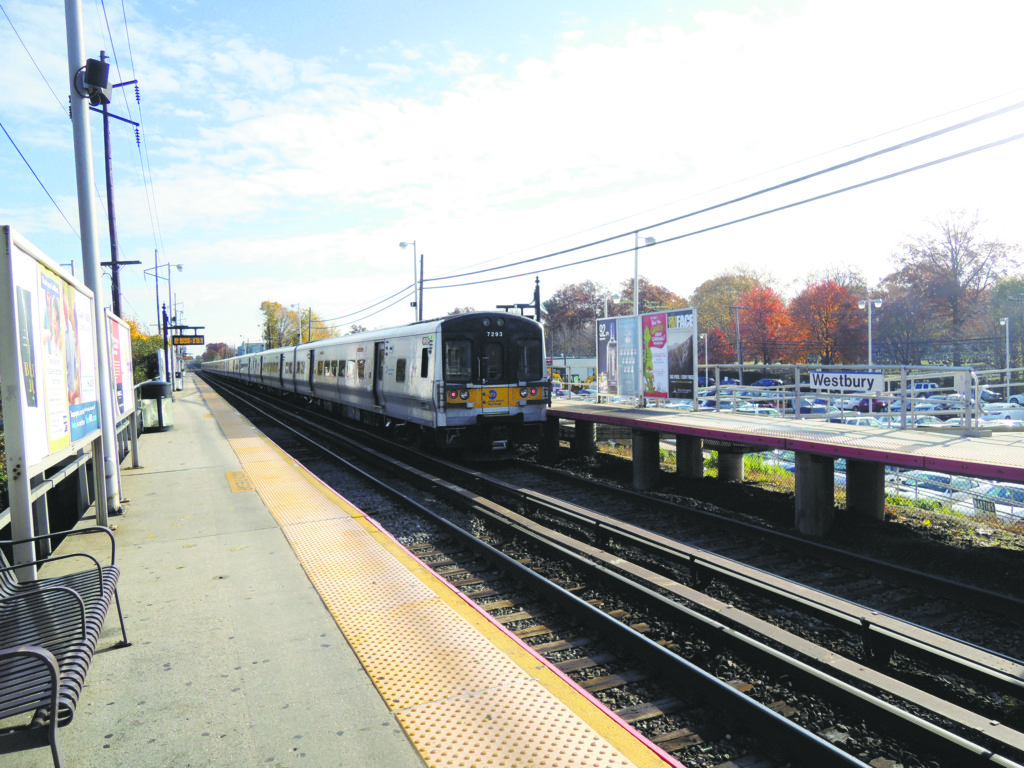As State Senate Republicans gave the green light last week to fund the $1.95 billion Long Island Rail Road Third Track Extension project last week, local officials expressed the same mixed opinions they had voiced since the announcement of Gov. Andrew Cuomo’s upgrade plan for the commuter rail line.
“It’s a tremendous disruption to the village and the residents—the trucks, the noise, the vibration. The overriding concern is what is going to be the long-term impact on the community, not only during the construction but after it,” said New Hyde Park Mayor Lawrence Montreuil.
Village of Westbury Mayor Peter Cavallaro voiced his support of the project.
“Myself and my board believe it will be good for the community and transformative for the region,” said Cavallaro, who represents the only village in the 9.8-mile corridor between Floral Park and Hicksville to support the plan for the third track line from the outset.
Senate Majority Leader John Flanagan announced the Senate Republicans’ decision to sign off on funding for the third track project last Tuesday, noting the benefits for communities along the corridor.
“I’m pleased that communities impacted by the proposed ‘third track’ will receive the safety and quality-of-life upgrades they have said were critical. I’m glad that we’re talking about renovated stations and new parking garages, and that Penn Station’s outdated signal system will soon be modernized,” Flanagan said in a statement.
In his statement after the Republican action, Cuomo said, “After decades of delay we took action to fundamentally change the economy on Long Island and secure its future prosperity.”
The State Assembly had already backed the Cuomo plan.
Flanagan announced the funding decision less than two weeks after the prospect of a Senate veto prompted the Metropolitan Transportation Authority to temporarily pull the plan from consideration by the Capital Program Review Board. That board contains representatives from the Senate, the Assembly and Cuomo, each of whom can block any proposal.
But at the 11th hour, two municipalities that had adamantly resisted the third track plan reached terms with the MTA on quality of life issues during the project’s construction, shifting the political picture. The Villages of New Hyde Park and Floral Park both drafted memorandums of understanding with the MTA to set terms that will set parameters for the contractors when construction commences.
Cavallaro said elimination of the School Street grade crossing in Westbury is a long overdue “public safety priority,” that has been “an accident waiting to happen.” He also sees a local benefit to the parking upgrades around the Westbury LIRR station that are part of the project. He sees the third track as a step toward significantly upgrading the LIRR as a commuter rail line.
“It is going to vastly improve the service on the main line and make it easier for people on our communities and other communities to get into the city,” Cavallaro said.
In her statement, MTA interim Executive Director Veronique Hakim said, “The MTA took extensive time to talk with local villages and officials and address concerns they may have, and that effort was successful. Today we conclude with a positive outcome.”
In their statement on behalf of Citizens Against Rail Expansion, a coalition of 120 individuals and grassroots groups aligned against the LIRR third track project, Bill and Ann Corbett of Corbett PR in Floral Park, said they hoped the MTA would “make every effort to mitigate the myriad of negative impacts that have been voiced by the public.”
They also cited the need for regular audits during the project.
Third track supporters have cited the prospect of running more trains between Manhattan and Nassau and Suffolk counties as its primary benefit. All the mayors along the mainline commended State Sen. Elaine Phillips for her role in assisting village officials as the third track project was being considered.
“I strongly believe the MTA must strike an appropriate balance between fixing the problems responsible for the derailments, disruptions and delays that LIRR commuters have experienced and making the strategic investments necessary to facilitate the region’s continued growth,” Phillips said in a statement after funding approval was announced.






























